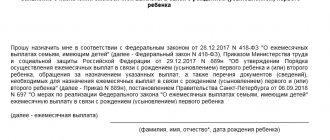Dear readers! Our articles talk about typical ways to resolve legal issues, but each case is unique. If you want to find out how to solve your particular problem, please use the online consultant form on the right or call. It's fast and free!
All family members are on an equal footing before the law. The Family Code and the family are closely related.
Relatives are:
- By blood
- In connection with marriage
- Through child adoption
- When obtaining custody of a child
- Children of parents from other marriages are also considered relatives
Family Code - Family Members
Family members are listed in the Family Code of the Russian Federation. These include people who have a family relationship with each other, which is documented. People living in the same living space can also be considered relatives.
If one of the distant relatives has lost their parents, then other relatives are obliged to take custody of them. Relatives cannot marry each other, as this is contrary to ethics and law.
Let's celebrate! The concept of family appeared a long time ago and it will not be considered real without a marriage union. Each member has his own rights and obligations, both before other relatives and before the law.
Who are the family members?
The Family Code has determined a list of people who, in certain circumstances, are relatives.
This may not be a direct, but an indirect relationship. Even complete strangers can become relatives after certain events.
Family Qualification:
- Father (husband)
- Mother (spouse)
- Children
- Brothers
- Sister
- Cousins
- Second cousins
- Grandmothers and grandfathers
- Aunts and uncles
- Cousins and uncles
- Second cousins
- Nephews and nephews
- Cousins and nieces
- Second cousins and nieces
- Father-in-law
- Mother in law
- Father-in-law
- mother-in-law
- Matchmaker
- Son-in-law
- Daughter-in-law
- brother-in-law
- Sister-in-law
- Brother-in-law
- Sister-in-law and brother-in-law
- Stepbrothers and sister
- Grandchildren
- Stepchildren
- Stepfathers and matches
Who can be a family member?
You can become a family member under different circumstances:
- Marriage
- Adoption
- Guardianship
- The bride's relatives automatically become a member of the groom's family and vice versa
Note! Family members, as a rule, live in the same territory and run the same household.
Preferential conditions and benefits for single-parent families - what is required, how to apply
The number of single-parent families is increasing every year.
This situation arose due to the prevalence of divorce among couples who were once married and the high mortality rate, which makes it impossible to fully raise a child. The legislation provides ways to support children and parents in need of help. The main legal acts regulating the receipt of benefits for single-parent families are the Constitution, the Family Code, Law number 1032-1, in force since April 19, 1991 - “On Employment in the Russian Federation”, other documents established at the regional level, issued by administrative bodies .
Responsibilities and rights of family members
Every citizen of the Russian Federation has rights and responsibilities. If a violation of rights occurs, these issues are resolved in the courts. The main document confirming relationship is a birth certificate.
Relatives are obliged:
- Support each other
- Respect all members
- Children and grandchildren are obliged to help incapacitated relatives during illness
- Younger people help older ones
- Adults must financially support minor members
- Rights and responsibilities should not be for the benefit of some family members and to the detriment of others
Spouses
Spouses have the right to choose their own occupation. Change your place of residence and hobbies. Any family issues should be resolved jointly.
A mother's responsibility is the same as a father's. They are jointly responsible for their children until they reach 18 years of age. If a marriage is dissolved, this does not deprive a person of his status as a family member.
Children and parents
- There must be respect between children and parents.
- Children are obliged to obey their parents, and the mother and father, in turn, must provide the children with a decent existence.
- Parents should be protectors and mentors for their children.
- If the child is left in danger, the parents will face criminal liability. The same as in the case of inappropriate treatment, bullying and beatings. The state has the right to deprive negligent parents of parental rights and take minor children to an orphanage. In this case, the guardianship and trusteeship authorities will be responsible for these children. Until the age of 18, they will represent their interests and educate them.
- Parents are obliged to provide their children with decent living and education.
- The husband and wife do not have the right to sell the property in which the child is registered without providing him with equivalent housing.
- Children and spouses are first in line to inherit property.
- Children are obligated to support their parents and other relatives in old age.
Other members
In addition to close relatives, there are also distant ones. These are people who do not have a direct family connection, but are considered close through other people. If the relationship is not documented, then the person does not have the right to be considered a family member. This question often comes up when dividing inheritance.
To claim your rights to another person's property, you must have a basis. This basis may be a will or a document of kinship. In the latter case, the person will inherit according to the law.
Note! Close people should appreciate and love each other. Remember that family ties are an important aspect of civil relations. Without family relationships, such concepts as family and family hearth are lost.
Didn't find the answer to your question? Find out how to solve exactly your problem - call right now: +7 (Moscow) +7 (812) 309-53-42 (St. Petersburg) It's fast and free!
Contents of the Labor Code of the Russian Federation
Section I. General provisions
- Chapter 1. Family legislation
- Chapter 2. Exercise and protection of family rights
Section II. Conclusion and termination of marriage
- Chapter 3. Conditions and procedure for marriage
- Chapter 4. Termination of marriage
- Chapter 5. Invalidity of marriage
Section III. Rights and responsibilities of spouses
- Chapter 6. Personal rights and obligations of spouses
- Chapter 7. Legal regime of property of spouses
- Chapter 8. Contractual regime of property of spouses
- Chapter 9. Responsibility of spouses for obligations
Section IV. Rights and responsibilities of parents and children
- Chapter 10. Establishing the origin of children
- Chapter 11. Rights of minor children
- Chapter 12. Rights and responsibilities of parents
Section V. Alimony obligations of family members
- Chapter 13. Maintenance obligations of parents and children
- Chapter 14. Alimony obligations of spouses and former spouses
- Chapter 15. Alimony obligations of other family members
- Chapter 16. Agreements on payment of alimony
- Chapter 17. Procedure for payment and collection of alimony
Section VI. Forms of raising children without parental care
- Chapter 18. Identification and placement of children left without parental care
- Chapter 19. Adoption of children
- Chapter 20. Guardianship and trusteeship of children
- Chapter 21. Adoptive family
- Chapter 22. Placement of children left without parental care in organizations for orphans and children left without parental care
Section VII. Application of family law to family relationships involving foreign citizens and stateless persons
Section VIII. Final provisions
Excerpt describing Family Rights
“You see,” said the adjutant, “this is a complicated story. Then, two months ago, this proclamation appeared. They informed the Count. He ordered an investigation. So Gavrilo Ivanovich was looking for him, this proclamation was in exactly sixty-three hands. He will come to one thing: from whom do you get it? - That’s why. He goes to that one: who are you from? etc. we got to Vereshchagin... a half-trained merchant, you know, a little merchant, my dear,” the adjutant said, smiling. - They ask him: who do you get it from? And the main thing is that we know from whom it comes. He has no one else to rely on other than the postal director. But apparently there was a strike between them. He says: not from anyone, I composed it myself. And they threatened and begged, so he settled on it: he composed it himself. So they reported to the count. The count ordered to call him. “Who is your proclamation from?” - “I composed it myself.” Well, you know the Count! – the adjutant said with a proud and cheerful smile. - He flared up terribly, and just think: such impudence, lies and stubbornness!.. - Ah! The Count needed him to point to Klyucharyov, I understand! - said Pierre. “It’s not necessary at all,” the adjutant said fearfully. – Klyucharyov had sins even without this, for which he was exiled. But the fact is that the count was very indignant. “How could you compose? - says the count. I took this “Hamburg newspaper” from the table. - Here she is. You didn’t compose it, but translated it, and you translated it badly, because you don’t even know French, you fool.” What do you think? “No,” he says, “I didn’t read any newspapers, I made them up.” - “And if so, then you are a traitor, and I will bring you to trial, and you will be hanged. Tell me, from whom did you receive it? - “I haven’t seen any newspapers, but I made them up.” It remains that way. The Count also called on his father: stand his ground. And they put him on trial and, it seems, sentenced him to hard labor. Now his father came to ask for him. But he's a crappy boy! You know, such a merchant's son, a dandy, a seducer, listened to lectures somewhere and already thinks that the devil is not his brother. After all, what a young man he is! His father has a tavern here near the Stone Bridge, so in the tavern, you know, there is a large image of the Almighty God and a scepter is presented in one hand, and an orb in the other; so he took this image home for several days and what did he do! I found a scoundrel painter... In the middle of this new story, Pierre was called to the commander-in-chief. Pierre entered Count Rastopchin's office. Rastopchin, wincing, rubbed his forehead and eyes with his hand, while Pierre entered. The short man was saying something and, as soon as Pierre entered, he fell silent and left. - A! “Hello, great warrior,” said Rostopchin as soon as this man came out. – We’ve heard about your prouesses [glorious exploits]! But that's not the point. Mon cher, entre nous, [Between us, my dear,] are you a Freemason? - said Count Rastopchin in a stern tone, as if there was something bad in this, but that he intended to forgive. Pierre was silent. - Mon cher, je suis bien informe, [I, my dear, know everything well,] but I know that there are Freemasons and Freemasons, and I hope that you do not belong to those who, under the guise of saving the human race, want to destroy Russia. “Yes, I’m a Freemason,” answered Pierre. - Well, you see, my dear. You, I think, are not unaware that Messrs. Speransky and Magnitsky have been sent where they should be; the same was done with Mr. Klyucharyov, the same with others who, under the guise of building the temple of Solomon, tried to destroy the temple of their fatherland. You can understand that there are reasons for this and that I could not exile the local postal director if he were not a harmful person. Now I know that you sent him yours. crew for the rise from the city and even that you accepted papers from him for safekeeping. I love you and do not wish you harm, and since you are twice my age, I, as a father, advise you to stop all relations with this kind of people and leave here yourself as soon as possible. - But what, Count, is Klyucharyov’s fault? asked Pierre. “It’s my business to know and not yours to ask me,” cried Rostopchin. “If he is accused of distributing Napoleon’s proclamations, then this has not been proven,” said Pierre (without looking at Rastopchin), “and Vereshchagin...”
What goals does the legislator pursue when regulating family legal relations?
Family legislation and other acts containing norms of family law pursue the following goals:
- family strengthening;
- inadmissibility of interference in family affairs.
Marriage, as a legal fact, gives rise to legal consequences leading to the emergence of legal relations between the parties specified in the laws.
The family is under state protection and needs guarantees.
Some legal experts consider the position that moral and ethical guidelines are considered the principles of family law as a controversial issue. This is the existence of the institution of family on mutual love, sympathy, mutual assistance. However, it cannot be denied that these principles significantly influence the creation of an atmosphere in the family, and also run as a “red thread” through many provisions of the Family Code.
Definition under housing legislation
An accurate explanation of the phrase “family member” is required to resolve many controversial issues. Often, to clarify this issue, they turn to family law, and sometimes to court. This term is clearly defined in housing legislation for receiving any benefits: subsidies, benefits, apartments. (Housing Code of the Russian Federation, Art. 31).
Family relations of the homeowner are associated with a group of people:
- Spouse.
- Children.
- By parents.
Sometimes it is necessary to determine the status of a person living in an apartment in order to know his rights to living space. Often this task arises during divorces and changes in the place of residence of one of the spouses. According to the Housing Code, a spouse living separately is not bound by family relations.
Family law methods
The sovereignty of family law is also determined by the fact that the industry has its own method of regulating family relations. The method of legal regulation is a set of techniques and methods by which the norms of family law influence social relations included in the subject of legal regulation.
The method of family law in terms of the content of the impact on relationships is permissible, and in terms of the norm of regulations - imperative (mandatory) and in the combination of these two principles it is permissible-imperative. The imperative nature of the method is expressed in the fact that the state, giving subjects of family relations the right to choose a model of behavior, defines the framework of appropriate behavior in imperative instructions. Permissiveness is the predominance of empowering norms that vest participants in family relationships with certain rights that are determined imperatively. For example, no one can force someone to get married, but the procedure for getting married is determined by law.
Along with enabling norms, family law contains obligatory and prohibitory norms, i.e. norms of a mandatory nature, which make up most of the norms of family law. The imperative nature of family law regulation serves as a means of the most complete and reliable provision and protection of the interests of participants in family relations.
Family law does not allow the establishment of rights and obligations by agreement of the parties, since they are provided for by law (conditions and procedure for marriage, grounds for invalidating a marriage, rights and obligations of parents, etc.). But the parties have the right to determine the procedure for exercising their rights and obligations by agreement. Specific regulation in family law can be achieved with the help of “situational norms”. In modern family law, there is an increase in the number of dispositive norms, which indicates the expansion of the use of the permissive method.
The legal method of regulating family relations is characterized by the fact that the norms of family law establish the interconnection and interdependence of the rights and responsibilities of specific participants (subjects) of these relations - family members who, in exercising these rights and responsibilities, must be guided by the interests of the family, respect the interests of minors and disabled people. members. The features of the method of regulating family relations include the strictly personal nature and inalienability of the rights belonging to their subjects, the possibility of changing the scope of rights and obligations by agreement of the parties within the limits specified by law and in strictly limited cases.
Thus, the existing methods of legal regulation of family relations are distinguished by significant diversity and make it possible to streamline them, exclude arbitrary interference by anyone, including the state, in family affairs, and also ensure the protection of the rights and interests of all family members.
Clarify please. What is an incomplete family?
Article 24. Deferment from conscription of citizens for military service
1. A deferment from conscription for military service is granted to citizens: a) recognized in the manner established by this Federal Law as temporarily unfit for military service for health reasons - for a period of up to one year; b) those who are constantly caring for a father, mother, wife, brother, sister, grandfather, grandmother or adoptive parent, if there are no other persons obligated by law to support these citizens, and also provided that the latter are not fully supported by the state and need, for health reasons, in accordance with the conclusion of the federal medical and social examination institution at the place of residence of citizens called up for military service, constant outside care (assistance, supervision);
(as amended by Federal Laws dated December 1, 2004 N 149-FZ, dated July 6, 2006 N 104-FZ) b.1) being a guardian or trustee of a minor brother or minor sister in the absence of other persons obligated by law to support these citizens ;
(clause “b.1” was introduced by Federal Law No. 104-FZ of July 6, 2006) c) having a child and raising him without the child’s mother;
(as amended by Federal Laws dated July 6, 2006 N 104-FZ, dated December 30, 2012 N 288-FZ) d) having two or more children; e) having a disabled child under three years of age;
(as amended by Federal Law No. 104-FZ dated 06.07.2006) f) - g) have lost force since January 1, 2008. — Federal Law of July 6, 2006 N 104-FZ; h) those who entered the service of the internal affairs bodies, the State Fire Service, institutions and bodies of the penal system, bodies for control of the circulation of narcotic drugs and psychotropic substances and customs authorities of the Russian Federation immediately after graduating from educational institutions of higher professional education of the above bodies and institutions, respectively , if they have higher professional education and special titles - for the duration of their service in these bodies and institutions;
(as amended by Federal Laws dated July 6, 2006 N 104-FZ, dated December 17, 2009 N 312-FZ) i) having a child and a wife whose pregnancy is at least 26 weeks;
(paragraph “i” was introduced by Federal Law dated April 22, 2004 N 20-FZ, as amended by Federal Law dated July 6, 2006 N 104-FZ) j) elected by deputies of the State Duma of the Federal Assembly of the Russian Federation, deputies of legislative (representative) bodies of the state authorities of the constituent entities of the Russian Federation, deputies of representative bodies of municipal entities or heads of municipal entities and exercising their powers on an ongoing basis - for a term of office in these bodies;
(paragraph “k” was introduced by the Federal Law of June 19, 2004 N 53-FZ; as amended by the Federal Law of March 11, 2006 N 37-FZ) k) registered in accordance with the legislation of the Russian Federation on elections as candidates for replacement through direct election of a position or for membership in bodies (chambers of bodies) of state power or local government bodies - for the period up to and including the day of official publication (promulgation) of the general election results, and in case of early retirement - up to and including the day of retirement.
(paragraph “l” was introduced by Federal Law dated June 19, 2004 N 53-FZ)
2. The following citizens have the right to a deferment from conscription for military service: a) full-time students in: educational institutions with state accreditation for educational programs of secondary (complete) general education - for the duration of training, but until these citizens reach the age of 20 years; having state accreditation in the relevant areas of training (specialties) in educational institutions under primary vocational education programs or secondary vocational education programs, if they have not received secondary (complete) general education before entering these educational institutions - for the duration of training, but not beyond the standard periods of mastering basic educational programs and until these citizens reach the age of 20; having state accreditation in the relevant areas of training (specialties) in educational institutions under secondary vocational education programs, if they received secondary (complete) general education before entering these educational institutions and reach conscription age in the last year of study - for the duration of study, but not beyond standard deadlines for mastering basic educational programs; having state accreditation in the relevant areas of training (specialties) in educational institutions of higher professional education in: bachelor's degree programs, if they do not have a bachelor's degree, specialist's diploma or master's degree - for the duration of training, but not beyond the standard time frame for mastering the main educational programs; specialist training programs, if they do not have a bachelor’s degree, specialist’s diploma or master’s degree - for the duration of training, but not beyond the standard time frame for mastering basic educational programs; master's programs, if they do not have a specialist's diploma or a master's degree and entered the specified educational institutions in the year of obtaining the bachelor's qualification (degree), - for the duration of training, but not beyond the standard time frame for mastering the main educational programs.
The deferment from conscription for military service provided for by this subparagraph is granted to a citizen only once, with the exception of one of the cases if: the first deferment from conscription for military service was granted to the citizen in accordance with paragraph two of this subparagraph, the citizen can re-use the right to a deferment from conscription for military service in accordance with paragraphs six or seven of this subclause; the first deferment from conscription for military service was granted to the citizen in accordance with paragraph six of this subclause, the citizen may again exercise the right to a deferment from conscription for military service in accordance with paragraph eight of this subclause.
The right to a deferment from conscription for military service provided for in this subparagraph is reserved for a citizen who has received academic leave during the period of study or who has transferred from one educational program to another educational program of the same level in the same educational institution or who has been transferred to another that has state accreditation in the relevant areas of training. (specialties) educational institution for training in an educational program of the same level. The right to a deferment from conscription for military service is reserved for a citizen on the grounds provided for in this paragraph only if the total period for which the citizen was granted a deferment from conscription for military service for studying in a given educational institution or in an educational institution from which the transfer was made, does not increase or increases by no more than one year; reinstated in the same educational institution (with the exception of citizens reinstated in educational institutions after expulsion for violation of their charters, internal regulations or for other unjustified reasons), if the period for which the citizen was granted a deferment from conscription for military service for training in this educational institution, does not increase;
——————————————————————
Citizens who were granted a deferment from conscription for military service in accordance with subparagraph “b” of paragraph 2 of Article 24 of this document before the entry into force of the Federal Law of December 1, 2011 N 376-FZ, enjoy the specified deferment until its expiration or until disappearance of its basis (Federal Law of December 1, 2011 N 376-FZ).
—————————————————————— b) those receiving full-time postgraduate professional education in educational institutions of higher professional education, educational institutions of additional professional education, scientific organizations for basic educational postgraduate professional education programs classified as accredited enlarged groups of areas of training and specialties - for the duration of training, but not beyond the standard deadlines for mastering basic educational programs and for the duration of the defense of qualifying work, but not more than one year after completion of training in the educational program of postgraduate professional education ;
(clause “b” as amended by Federal Law dated December 1, 2011 N 376-FZ) c) to whom this right is given on the basis of decrees of the President of the Russian Federation; d) who have received satisfactory results at the mandatory state (final) certification upon completion of mastering the basic educational program of secondary (complete) general education - for the period until October 1 of the year of passing the said certification.
(Clause “d” was introduced by Federal Law dated June 28, 2011 N 167-FZ)
(clause 2 as amended by Federal Law dated July 6, 2006 N 104-FZ (as amended on October 24, 2007))
3. Lost force on January 1, 2008. — Federal Law of July 6, 2006 N 104-FZ.
Benefits for single-parent families in 2018
Taking into account the fact that some decisions on providing assistance to people in preferential categories are made at the regional level, taking into account the characteristics of the subject, recipients can count on preferences in the field of social legislation, healthcare, education, and labor relations.
What should single women with children do?
When a mother is left alone with a minor, she bears a huge burden of responsibility for his well-being, upbringing, maintaining health, and providing him with everything necessary for development. In this regard, she can count on:
- for pension payments to the child’s personal account if the father died or was declared dead by a court decision;
- in the event of a divorce, the legal representative of a minor has the right to collect alimony so that the children can eat well, dress well, organize leisure time and other activities necessary for them;
- child benefits, issued in the amount of 40 percent of the total salary, for the previous 2 years of official work (calculated on an individual basis);
- 50% discount on payment for housing and communal services;
- payment of a scholarship if she is studying full-time.
What do children from single-parent families without a mother have the right to?
Not only mothers are involved in raising children; in some cases, the father may also remain the only legal representative of the minor. Children in this situation have the right:
- for free meals in a preschool institution and with partial payment at school;
- implementation of discounts on visiting kindergarten and getting a place out of turn;
- obtaining certain medications from the established list according to a doctor’s prescription;
- if the mother has died, the child is paid a benefit due to the absence of a second breadwinner.
It should be noted that in order to receive privileges, the family must fit into the low-income category, with the exception of payments after the death of the mother, it is provided to absolutely all children.
What benefits can a mother raising a child alone after a divorce expect?
Concepts such as a single woman with a child or raising him after a divorce have different meanings. The first category includes those who raise children alone, paternity has not been established, and the second mother, whose baby has a father, but after the divorce he does not live with him, but theoretically can help in the maintenance and upbringing.
Thus, the legislation does not provide for measures of assistance from the state in this case, but the woman reserves the right to collect alimony for herself and the minor through the court, or to resolve this issue with the second parent in pre-trial proceedings.









